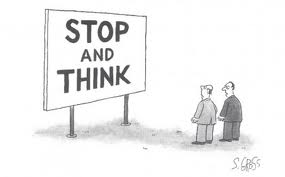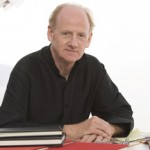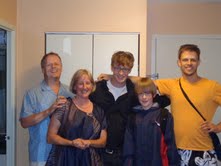I read Andrew Cohen’s While Canada Slept about a year and a half ago. He’s an Ottawa man, so though his book isn’t new, he’s here and his book is even more relevant. Questions about Canada’s involvement in Afghanistan keep growing with every young man (and one woman) that we bring home to bury. Are we returning to a time when Canada “punches above its weight” as far as international influence goes? Cohen recommends it, from a military but especially from diplomatic and development perspectives. This is a smart and eloquent guy. If he was more prone to performance and less to dispassionate analysis, he’d be a big star in the punditocratic constellation. Punditocratic. a. describing those who make their living by entertaining us with their knowledge. Word of the day. Word to your father. You’re welcome.
Steven Manners has the look of a stubbornly loyal but chronically disappointed pro sports fan. (The Cubs. The Leafs.) He makes Cohen look like a sharpie, a vaudeville showman, but his wryly detached delivery began to grown on me as he discussed his Super Pills: The Prescription Drugs We Love to Take. I enjoyed his historical reminders of how root beer and Coca-Cola starting out as tonics, in the great tradition of Ayer’s Sarsparilla and Lydia E. Pinkham’s Vegetable Compound. (For example, only when the forerunner of the American Food and Drug Administration began to investigate why Coke “contains neither coca nor kola” did the company begin marketing it as a mere beverage.) Mainly, though, his book addresses the modern phenomenon that has been called “cosmetic psychopharmacology”: the avid search for and consequently ready supply of meds designed to make us “better than well”. Valium. Prozac. Ritalin. Viagra. The list is long, and the stories around them are a caution. We do love our magic bullets.
After Mr. Manners, I hustled over to fancier digs at Ottawa’s famous Chateau Laurier ballroom to hear my Ol’ Boss, former Governor General Adrienne Clarkson. Her memoir Heart Matters is monstrously important for me and all my former colleagues, and is making a predictably big splash in Canadian newspapers and bookstores. Many in the large crowd, I’m sure, were anxious to hear the “state secrets” she has been admonished in some circles for telling. She was not a big fan of Prime Minister Paul Martin, it is now publicly clear, but she dismisses any idea that she’s broken a sacred code. In any case, she didn’t share anything from that part of the book. What she did read was fine storytelling, much of which I hadn’t heard before, about her family’s harrowing refugee experience and growing up an immigrant in a then very white Canada. She is a superb performer, of course, but she read far too long and the subsequent delightful conversation with host Ken Rockburn was far too short. (Yes, she simply cannot do without me. Ahem.) But then again, the line of book buyers eager to have it signed went on and on. I was in it.
The “Big Idea” series continued Monday night with Stephen O’Shea and his book Sea of Faith: Islam and Christianity in the Medieval Mediterranean World. I was not familiar with O’Shea, but he’s impressive and I’ll read his book. He’s a journalist writing history, and made a point about the importance of being in the place where great events occurred, and not merely consulting texts in libraries. This was perhaps a gentle critique of academic historians and also of our frequent tendency to give greater weight to abstraction and reference than to direct and felt experience. O’Shea devotes much of the book to countering a pervasive fallacy: the idea that war and conflict is what defines the course of history. Most accounts of medieval relations between Christianity and Islam focus on the great battles (“if it bleeds, it leads”), but O’Shea gives considerable attention to the long periods of peace and productive interaction between the two faith communities. He coins the term “Islamochristian civilization”, and terms the historic relationship as “a sibling rivalry, not this dangerous shibboleth of the ‘clash of civilizations’”. And as for “East is East, and West is West”? O’Shea argues, very convincingly, that “the twain did meet, and mingle, and marry”. He eloquently expresses his dismay at the contemporary toxic rhetoric that mixes politics and religion, and especially the West’s ignorance of Islam and its ongoing “fear of the Turk” – a renewable resource, it appears. “Religion, for all its solace, will always be a ready hand grenade for those who wish to make war,” he said. And I liked the following example, thrown off during questioning after his thoughtful and appealing talk. It’s a good conversation starter (or ender!), and rattles some of the slack-minded impressions of Islam into a new context. “Osama bin Laden is as much a Muslim,” O’Shea stated, “as David Koresh and the Branch Davidians at Waco were Christian…” This guy is good. (I’ve been doing a lot of thinking and listening about Islam lately. If you’d like a sample, start here.)




